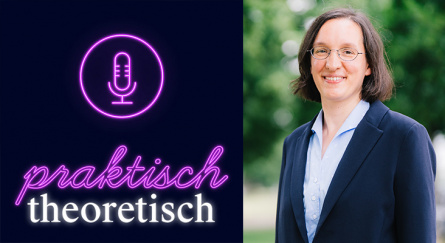
Alexandra Kaasch is a professor at Bielefeld University and a member of CRC 1342 since the beginning of the year: together with Kerstin Martens and Ewa Kaminska-Visser, she directs project B12 Crisis Management in the Covid 19 Pandemic by International Organisations.
In the podcast, which was created in the context of CRC 1288 "Praktiken des Vergleichens" ("Practices of Comparison"), Kaasch explains the questions they are pursuing in their research project: "We are investigating what recommendations international organisations give to similar countries in different parts of the world with regard to the Corona pandemic and its consequences. We are interested in: Does the social aspect that we see in global discourses also translate regionally in the attempts to deal with the crisis and the respective problem situations? We also compare international organisations with each other. Do they recommend the same things? What are their priorities? Where do they differ, where do they argue? And how do they organise their cooperation with the states?"
With regard to Germany, Kaasch notes that social policy spending is higher than ever before. " With regard to public finances and the labour market, it makes perfect sense to invest in social measures for a certain period of time during an economic crisis in order to have a stable situation after the crisis. In this way, Germany remains close to full employment. However, the growing mountain of debt that has to be paid back by an ageing population has to be set off against this. The question is: up to what point is the equation still positive? "With Corona, I think we will get to the point [and ask]: how much longer can we afford this, is it still possible now?"
According to Kaasch, crises like the Corona pandemic and its further aftermath can be used to identify previously hidden weaknesses in political (welfare) systems in order to eliminate them in the aftermath of the crisis: "building back better", as Kaasch calls it. "One example is teaching at universities. We had the tried and tested teaching model before the pandemic [almost exclusively face-to-face teaching], we see the adaptation in the crisis [almost exclusively digital teaching], and there is a desire to combine both into better teaching in the future." It is still necessary to clarify exactly what this should look like and how we can recognise what is actually best. But the situation shows that there is some truth in the often-used phrase "crises provide opportunities". "Because in crises we learn something about the vulnerability of existing systems and groups."
You can find the entire podcast (in German) here:
Praktisch Theoretisch #35: "Strong health systems help in every crisis" - from the economic to the Corona Crisis
Contact:
Prof. Dr. Alexandra Kaasch













